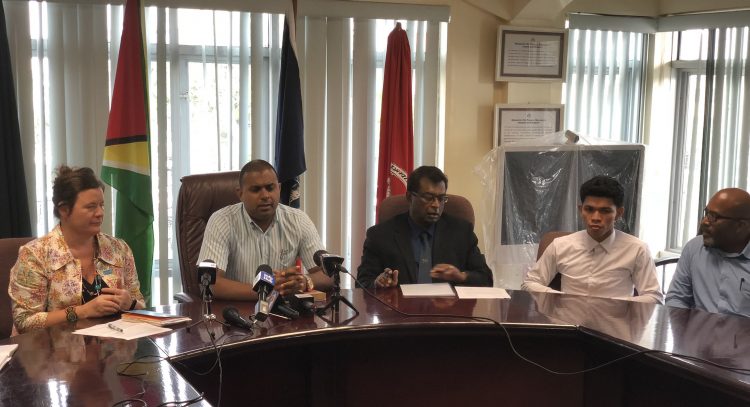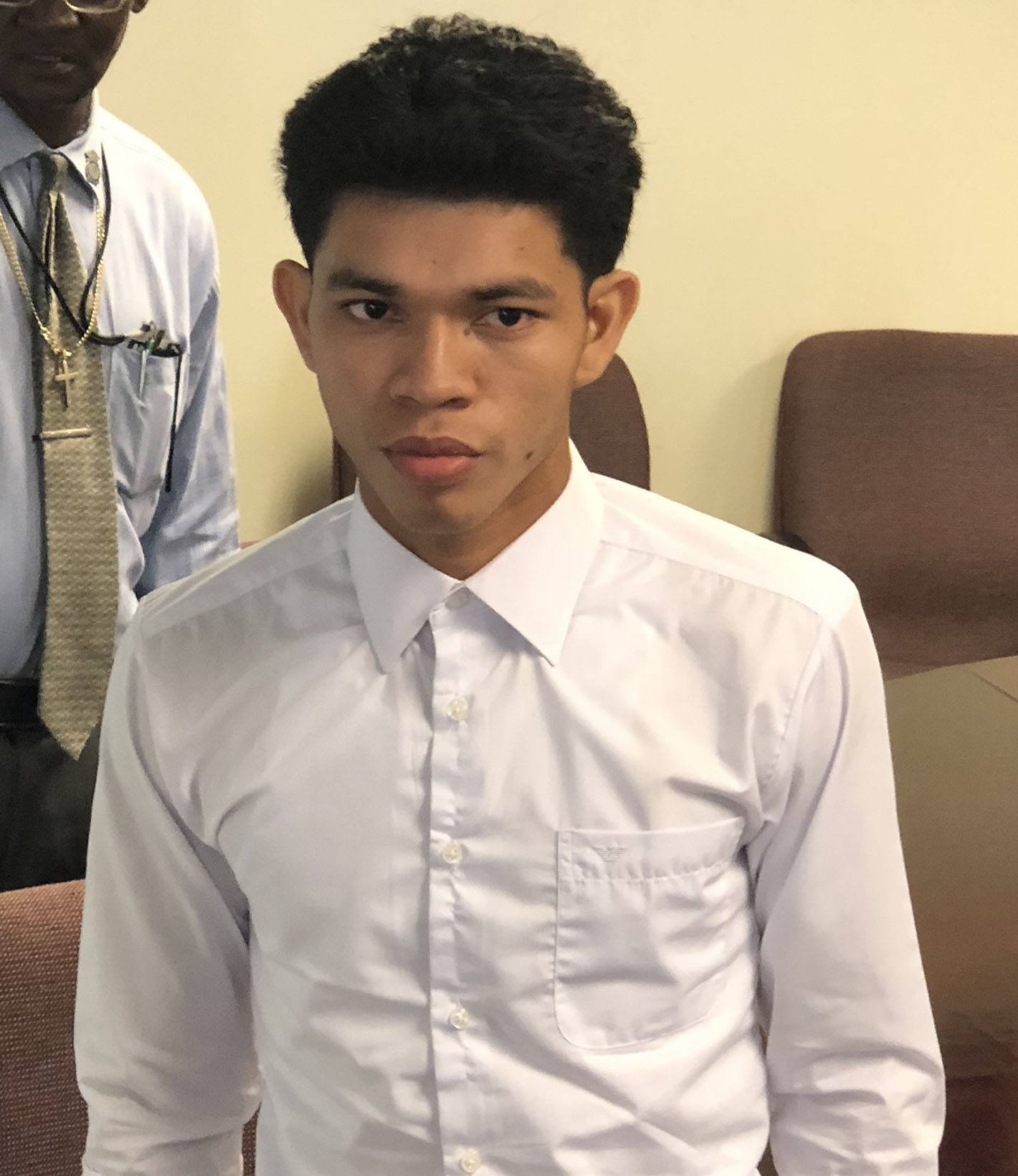The case of a teenaged boy being incarcerated for seven years on a murder charge, only to be released because of a lack of evidence, has underscored the need for the provision of free legal representation to children, the Minister of Public Security yesterday stated.
Minister Khemraj Ramjattan, speaking at a press conference convened to highlight the importance of providing free legal aid for children who are incarcerated and cannot afford representation, stated that he does not want to create a “jailhouse nation” for the children of the country
The Minister, in his address, referenced the case of 19-year-old Ian Henry, who was first taken into custody for murder in 2011. Despite no evidence being presented against the young man, he spent approximately seven years at the Sophia Juvenile Holding Centre.

“We must not allow that to happen to our children. I do not want a jailhouse nation for our children and that is why we will abolish a number of offences like wandering, truancy, runaways, minor offences all because of circumstances,” Ramjattan said.
Henry received assistance from the Rights of the Child Commission (RCC) and the United Nations Children Fund (UNICEF), which have been working collaboratively to provide legal support to juveniles within the justice system.
Henry was also present at the press conference yesterday and related his experience of being behind bars since the start of his teenage years.
Henry recalled encountering “horrible experiences and dark moments” that nearly jeopardized his whole future, which he said no one can give him back.
“I am not the only one that has been affected by this system. There are other youths I spent time with. Some don’t have financial support for their cases and the same was for me but the RCC and Guyana Legal Aid [Clinic] and UNICEF helped me and I am grateful for the support. My gratitude is [inexpressible],” he said, while noting that if it were not for the collaboration between the Commission and UNICEF, he would have still been behind bars.
“Just imagine from the age of 13 to 19, during this process I was denied my right for education. How could I go back to secondary level school to start over the whole process? It’s impossible. My only option is to go to a college and do a trade. My dream has been snatched away from me by the system. I was held by the system for something that has no substantial evidence against me,” an emotional Henry said, while recalling being treated “harshly, like dogs.”
Using his experience, Henry said that he hopes the government will treat similar matters seriously “because some of the youths don’t have the mentality to cope with the situation of incarceration.”
Amar Panday, CEO of the RCC and Chairperson of yesterday’s press conference, explained that the collaboration with UNICEF stemmed from a visit to the Juvenile Holding Center in 2015.
Panday explained that he was conducting a series of youth empowerment and personal development sessions with students of the Centre, and during one of the sessions, he encountered a “soft spoken young man from Baramita”, who responded intelligently to all the questions that were fielded during the interactions.
“We later found out his name – Ian Henry – who was charged in 2011 for murder. At that junction, his matter was still being handled in the magistrate’s court. This is 2018; only recently we found out that the office of the DPP [Director of Public Prosecutions] processed the case and he has been released, but nevertheless, this gentleman has spent almost seven years in state detention only to have his case dismissed,” Panday emphasized.
Panday said that they raised Henry’s matter years ago to identify what had gone wrong, since Henry’s situation was a “gross violation” of all the international minimum standards for prisoners on remand including the Kampala Declaration and the Mandela Rules.
The 2015 visit to the Centre also revealed that over 95 per cent of the children being detained there were also being denied their right to legal representation, which Panday said is an important article in the United Nations’ Convention on the Rights of the Child.
After being “armed with this diagnosis”, Panday noted that the Commission approached UNICEF, and funding was released to the Guyana Legal Aid Clinic. As a result, children from the Sophia Holding Centre, New Opportunity Corps (NOC), and other youths at the Timehri and New Amsterdam Prison were able to benefit from legal representation.
Diagnosis
“Had it not been for that diagnosis and the intervention of UNICEF and the Guyana Legal Aid Clinic, this gentleman could still have been in state detention because the matter would still be locked away from the attention of the key stakeholders,” Panday said, while highlighting that the buck does not stop at Henry’s case since there are many more children who face similar situations around the country.
Recalling similar cases he came across during his many years as a defence attorney, Ramjattan said, “It hurts my heart that indeed a youngster and an indigenous youngster, the first peoples of this country, suffered this hardship.”
He noted that he was not aware of the case until it was brought to his attention by Panday in 2015, and it was then he decided that he was duty-bound to ensure that the Juvenile Justice Bill becomes a reality. The bill, he said, is seeking to repeal the type of regime that is characteristic of the current legal system.
“We have to climb into that new regime of an international system where the guidelines are modern. It is going to be very expensive because we have to build halfway houses, we have to have professional staff to take care of them, we have to provide free legal counsel and the costing to that effect is presently being done by UNICEF,” the Minister said, while expressing gratitude to UNICEF and the RCC for their efforts.
Sylvie Fouet, UNICEF representative, also gave brief remarks and encouraged Henry to learn from his journey. She said that she wanted to ensure that it is known that legal aid can help. Fouet also said that the Juvenile Justice bill is very important to the children of the country and will ensure that voices are heard and invisible children are brought into the light.
Henry was arrested in 2011 in Baramita after he was suspected of murdering his cousin. However, despite being kept at the Holding Centre and visiting the Matthews Ridge Magistrate’s Court every three months, no substantial evidence was ever brought against him and the matter was constantly deferred. Despite no progress in the case against him, he was still kept for seven years in the Holding Centre.






